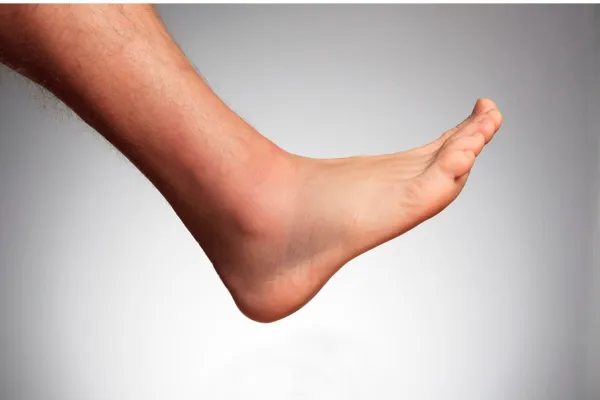Tips & Advice From Foot & Ankle Associates of Southern NH

Midfoot Injuries: How to Spot and Treat This Overlooked Problem
Most people know what a twisted ankle feels like. But what if the pain isn’t in the ankle—or the toes—but right in the middle of the foot? That’s the “midfoot,” and it’s an area that often gets overlooked until the pain becomes too hard to ignore.
At Foot & Ankle Associates of Southern NH, we see many people who think they’ve just “sprained” their foot, only to find out it’s something more serious, like a Lisfranc injury or a fracture in the midfoot bones. These injuries can sneak up on you and, if left untreated, may cause lasting problems with walking, balance, and even shoe comfort.
Where Exactly Is the Midfoot?
Think of the foot as three sections:
Hindfoot: Heel and ankle
Midfoot: The arch area—made up of small bones and strong ligaments that form the “bridge” of the foot
Forefoot: The ball of the foot and toes
The midfoot acts like a shock absorber, helping you push off when you walk or run. If it’s injured, every step can feel unstable or painful.
Signs You Might Have a Midfoot Injury
Some symptoms are easy to brush off, but here’s what should make you stop and pay attention:
Pain and swelling in the middle of the foot
Bruising on the top and bottom of the foot (bottom bruising is a big red flag)
Difficulty bearing weight, especially when pushing off
A feeling that the arch has “collapsed” or isn’t supporting you
If there’s been a twist, fall, or sports injury followed by these signs—especially bruising on the bottom of the foot—it’s worth getting checked right away.
Why Midfoot Injuries Get Missed
Many people (and sometimes even healthcare providers) mistake midfoot injuries for simple sprains. The trouble is, certain injuries—like Lisfranc ligament tears or midfoot fractures—need early treatment to heal well. Waiting too long can lead to arthritis, chronic pain, or permanent changes in foot function.
How We Diagnose and Treat Midfoot Injuries
Our team starts with a detailed exam and imaging (X-rays, sometimes MRI) to understand exactly what’s happening inside the foot.
Treatment may include:
Rest and immobilization: Using a boot or cast to allow healing
Physical therapy: To restore strength and flexibility
Custom orthotics: To support the arch and prevent re-injury
Surgery: Only if the bones or ligaments need to be realigned or repaired
The Bottom Line
Midfoot injuries may be less common than ankle sprains, but they’re often more serious when ignored. If you’ve had an injury and your foot just doesn’t feel right, don’t wait for it to “work itself out.” Early treatment is the key to avoiding long-term problems.
Struggling with midfoot pain?
The Foot & Ankle Associates of Southern NH team is here to help. We’ll figure out exactly what’s going on and create a plan to get you back on your feet—comfortably and confidently.
Ask Foot & Ankle Associates of Southern NH And Their Team
Fill in the form to request a call from our team. One of our team members will call you for FREE and answer any questions or concerns you may have about your condition
Where To Find Foot & Ankle Associates of Southern NH

If you have any questions before scheduling an appointment or for general inquiries, please use the contact us button below. Our team will promptly reach out to assist you.
Opening Hours
Monday: 8:00am – 5:00pm
Tuesday: 8:00am – 5:00pm
Wednesday: 8:00am – 2:00pm
Thursday: 8:00am – 5:00pm
Friday: 8:00am – 2:00pm
Saturday: Closed
Sunday: Closed

